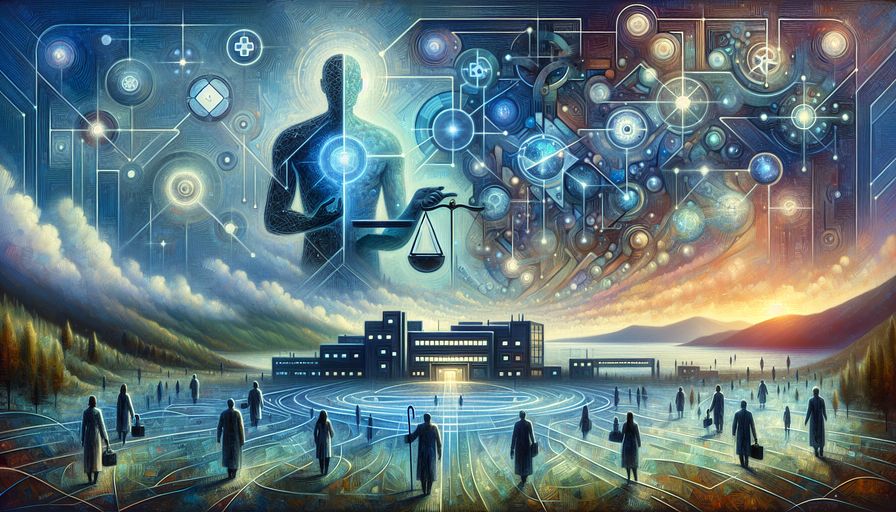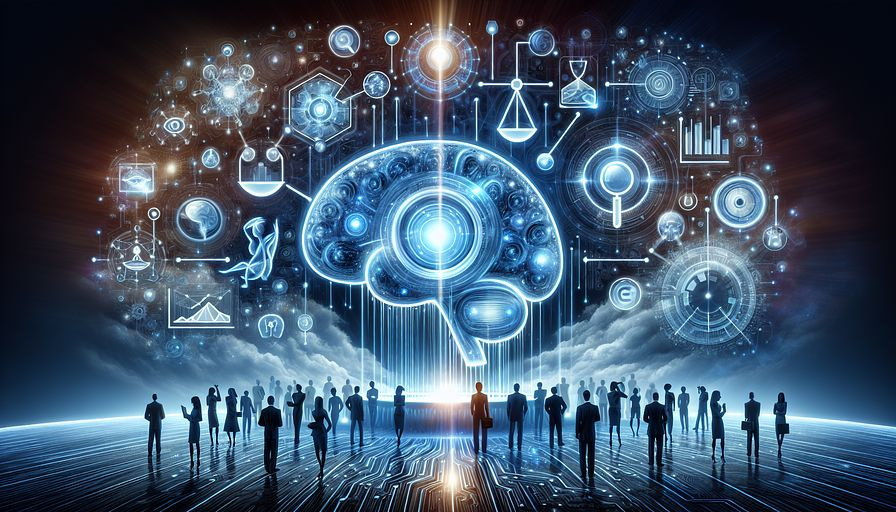Abstract:
AI and machine learning are transforming the healthcare sector by analyzing data to improve patient care, diagnose diseases, and personalize treatment plans. Technology leaders like CTOs and Directors of Technology play a critical role in driving the adoption of AI and ML in healthcare, requiring collaboration across disciplines and navigating regulatory and ethical considerations. While these innovations offer potential for more precise care, leaders must also address concerns such as bias and overreliance on AI. Balancing the transformative power of AI and ML with ethical responsibility is crucial for the future of healthcare technology.
AI and Machine Learning in Healthcare: A New Era for CTOs, Directors of Technology, and Directors of EngineeringArtificial Intelligence and Machine Learning: Transforming Technology and Healthcare
Artificial Intelligence (AI) and Machine Learning (ML) have become indispensable tools in the technology and engineering sectors. While AI refers to the broader concept of machines capable of performing tasks that would normally require human intelligence, ML is a subset of AI focusing on the development of algorithms that enable machines to learn and improve from data experiences. The fusion of AI and ML holds tremendous potential for transforming various industries, none more so than healthcare.
Artificial Intelligence and Machine Learning in Healthcare: Unleashing the Power of Data
Healthcare technology has witnessed an explosive growth in data, stemming from electronic health records, medical imaging, genomic sequencing, and wearable devices. AI and ML can help healthcare providers make better use of this data deluge. By analyzing vast quantities of data, AI and ML can unearth patterns, make accurate predictions, and provide personalized care. ML algorithms can identify high-risk patients, predict disease progression, and recommend bespoke treatment plans. Furthermore, AI-powered medical imaging tools can detect anomalies with unprecedented accuracy, revolutionizing medical diagnostics.
CTOs, Directors of Technology, and Directors of Engineering: Embracing AI and Machine Learning in Healthcare
With the potential of AI and ML in healthcare, technology, and engineering leaders must embrace these innovations. CTOs, Directors of Technology, and Directors of Engineering play pivotal roles in driving AI and ML adoption within their organizations. They must foster cross-functional collaboration, enabling data scientists, clinicians, and engineers to build impactful AI and ML applications that improve patient outcomes. These technology leaders must also navigate regulatory complexities and ensure data privacy and security, while cultivating a culture of ethical AI use.
The Future of AI and Machine Learning in Healthcare Technology: Balancing Potential with Responsibility
As AI and ML reshape healthcare technology, CTOs, Directors of Technology, and Directors of Engineering must balance the potential of these innovations with their responsibility to society. By harnessing AI and ML, healthcare providers can offer more precise, preventative, and personalized care. However, technology leaders must also safeguard against potential pitfalls, such as AI biases that perpetuate healthcare disparities or unintended consequences arising from overreliance on AI-generated insights. Through foresight, collaboration, and a steadfast commitment to ethical AI use, technology and engineering leaders can unlock the transformative power of AI and ML in healthcare.
You might be interested by these articles:
- AI Revolution in Personalized Medicine
- AI transforming healthcare logistics for cost savings and efficiency





